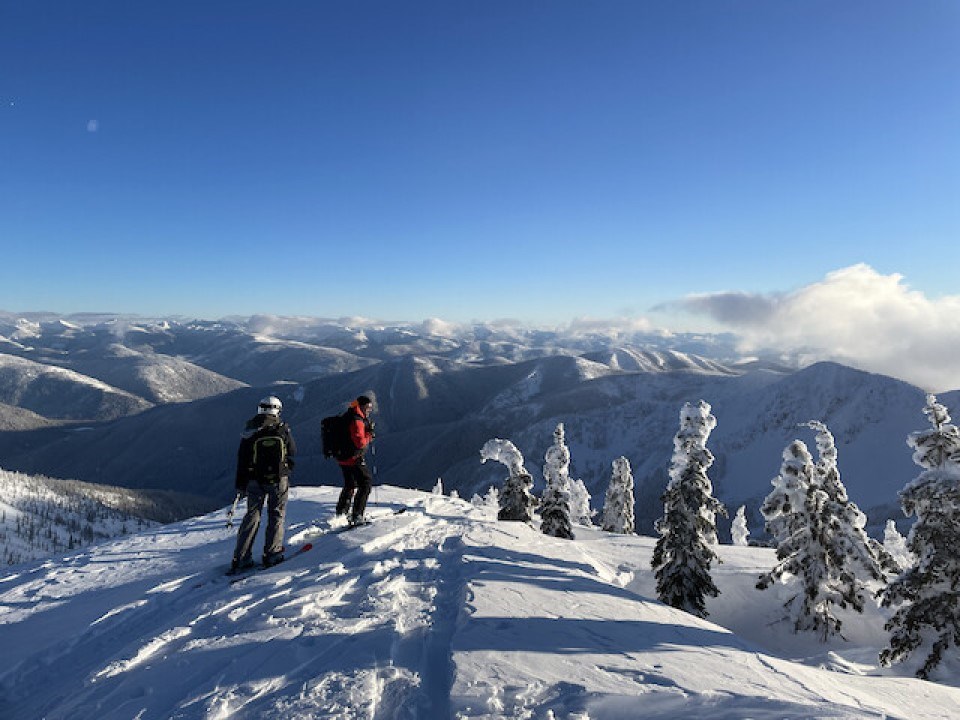While it has been a deadly winter for avalanches in B.C., closing the backcountry is not a realistic option, according to the executive director of the Association of Canadian Mountain Guides.
"It's a challenging snowpack this year, that's for sure," Kevin Dumba tells Castanet.
So far this season 12 people have died in six separate avalanches across British Columbia, including three people killed while heli-skiing near Panorama Mountain Resort, last Wednesday. Two more skiers were caught in two separate avalanches this past weekend in Pemberton, but survived.
"You know we've had two of them (fatal avalanches) with heli-ski operations this winter, very uncommon. That should highlight those recreating (in the backcountry). If it's happening to the professionals out there, then average folks need to be super careful," Dumba says.
Around 44,000 skiers hit B.C.'s mountains for heli- or cat-skiing every year. Dumba says the average number of fatalities annually is 1.2.
"Unfortunately, the avalanche professionals and the teams they work with don't receive a lot of feedback on the accuracy of their decision making until an avalanche actually occurs."
Dumba says private professional guides always put safety first and never succumb to any pressure applied by outside influences.
"The guys have meetings every morning, and they just have a green light or red light, and then they have others that are dedicated just to safety, and they'll fly around and take their test pits, and they'll evaluate how much the wind has affected snow conditions in a certain area."
Dumba says has been was taken aback by talk about closing the backcountry for the rest of the season.
"On average, there are 70 deaths a year in B.C. lakes due to swimming. We don't talk about closing the lakes. I think it's a pretty impractical proposition to consider."
Dumba says demand for adventure tourism activities is on the rise despite the obvious risks and for the people who work in the business, safety is their top priority. "They take their job very seriously. They love taking people into the backcountry, the demand keeps growing and the people who work in this industry want to meet that demand."
With plenty of time left in the season, Dumba says thousands more will be heading into the backcountry over the coming weeks. He has a word of advice for them: "consider hiring a guide."
"If you choose to travel unguided then you should commensurate with your level of experience and expertise and follow Avalanche Canada's recommendations."
Dumba says the snow conditions this year are very similar to conditions we experienced in 2002-2003 that saw 25 people killed in B.C.'s backcountry.
The number of deaths recorded this year so far is the highest since 2015-2016.




